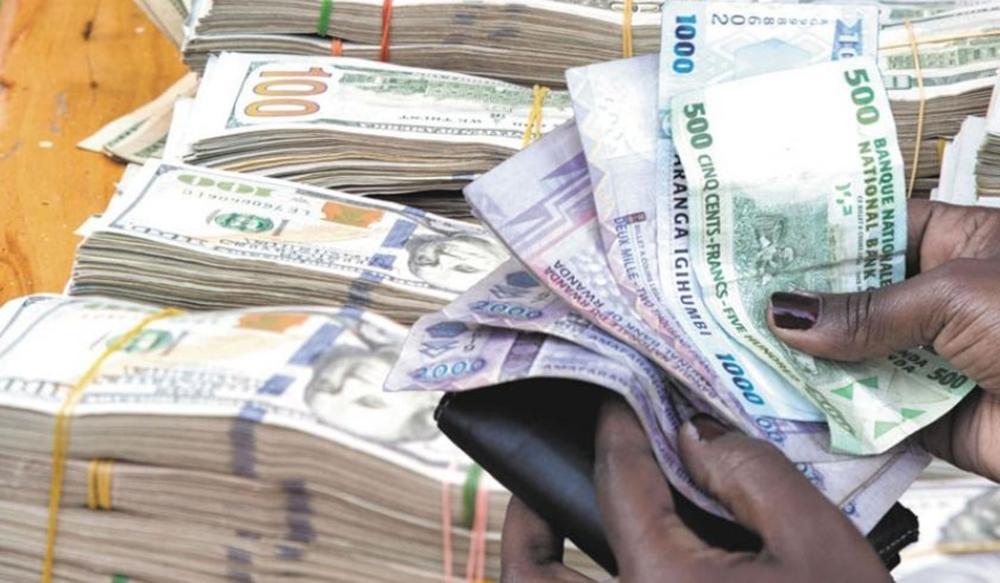Jean-Claude Nshimiyimana
Africa-Press – Rwanda. The National Bank of Rwanda (the “NBR” or “Central Bank”) has issued Regulation no 89/2025 of 23/05/2025 amending the Regulation n° 42 /2022 of 13/04/2022 governing foreign exchange operations (the “Amended Regulation on Foreign Exchange Operations” or “Amended FX Regulation”).
Published in the Official Gazette on May 30th, 2025, the Amended FX Regulation purposes to improve clarity and enforcement of existing FX legal provisions.
The original FX Regulation sought to liberalise the capital account and regulate foreign exchange transactions through licensed intermediaries. Non-licensed individuals or entities could apply to the Central Bank for authorisation to transact in foreign currency depending on need and business type. The FX Regulation also prohibited unauthorised pricing or trading in foreign currency and imposed strict penalties for violations.
Amended FX Regulation brings several notable changes compared to its predecessor Regulation n° 42/2022 of 13/04/2022 governing foreign exchange operations (the “FX Regulation”), primarily focusing on increased clarity in definitions and stricter, more specific penalties for non-compliance. Understanding the specifics of the amended legal provisions of FX Regulation is critical for businesses, individuals, and licensed intermediaries operating in Rwanda.
The Amended FX Regulation provides a detailed definition of “pricing in foreign currency”. This definition explicitly includes displaying prices in foreign currency, informing clients about the price in foreign currency, verbally or in writing, marketing or advertising prices in foreign currency, requesting payment in foreign currency, invoicing in foreign currency, fixing prices in contracts in foreign currency, or any other activities intended to inform a client of the price in foreign currency.
This granular definition removes potential ambiguity regarding what constitutes “pricing” and clarifies the scope of the prohibition, which was previously stated more generally under Article 32 of FX Regulation’s prohibited operations section. The definitions of “resident” and “non-resident” were also updated, replacing those in the original Article 2(4°&5°) of FX Regulation.
Article 2 of Amended FX Regulation introduces an Amended Article 20 which explicitly permits payment in foreign currency for goods or services exported or imported. This is a significant clarification.
While FX Regulation discussed foreign currency transfers for imports and exports, the general prohibition on pricing/transacting in foreign currency could have created uncertainty. The Amended Article 20 bis of Amended FX Regulation carves out a clear exception, facilitating international trade transactions.
The most impactful changes are in the amendment of Article 34 of FX Regulation, which deals with unauthorised foreign currency operations. The Amended Article 34 establishes specific administrative faults and corresponding pecuniary sanctions.
(a)For pricing in foreign currency without Central Bank permission, the penalty is Rwf 5m (Approx. USD 3,500) for the first instance and Rwf 10m (Approx. USD 7,000) for the second instance and above.
(b)For transacting in foreign currency without Central Bank permission, the penalty is 50% of the transacted amount for the first instance and 100% of the transacted amount for the second instance and above. These transaction-based penalties are to be paid in Rwandan francs using the exchange rate on the day the sanction is imposed.
(c)For engaging in foreign currency auctioning, the penalty is a pecuniary sanction equivalent to 50% of the total auctioned amount. This is a considerable increase from the 1% penalty mentioned in the FX Regulation and reinforces the strict stance against market manipulation.
(d)These sanctions also apply to licensed intermediaries or authorised dealers pricing or transacting in foreign currency with a resident.
(e)Failure to pay the sanction within 15 days results in reporting to the Credit Bureau (TransUnion) and a daily penalty of 1% of the sanction amount until paid in full.
For the first time, Amended FX Regulation introduces a specific provision on whistleblowing unauthorised foreign exchange operations through an Amended Article 37. This article places an obligation on every person to report information they possess or are aware of regarding unauthorised foreign exchange operations to the Central Bank.
Essentially, it also provides that whistleblowers are protected in accordance with relevant laws. This amended mechanism aims to boost compliance and enforcement by leveraging public participation.
Given these significant amendments, it is imperious for all individuals, businesses, and licensed intermediaries in Rwanda to familiarise themselves with the Amended FX Regulation. They must ensure strict compliance, particularly in relation to pricing, transacting, and the use of authorised channels for foreign exchange.
It is also fundamental to be aware of the specific pecuniary sanctions for unauthorised activities, which are now clearly defined and, in some cases, significantly increased.
Likewise, stakeholders should understand the whistleblowing provisions, including the public’s role in reporting unauthorised operations and the protections afforded to whistleblowers. Lastly, where necessary, consultation with legal and financial experts is advised to ensure full deference to the Amended FX Regulation.
Source: The New Times
For More News And Analysis About Rwanda Follow Africa-Press






